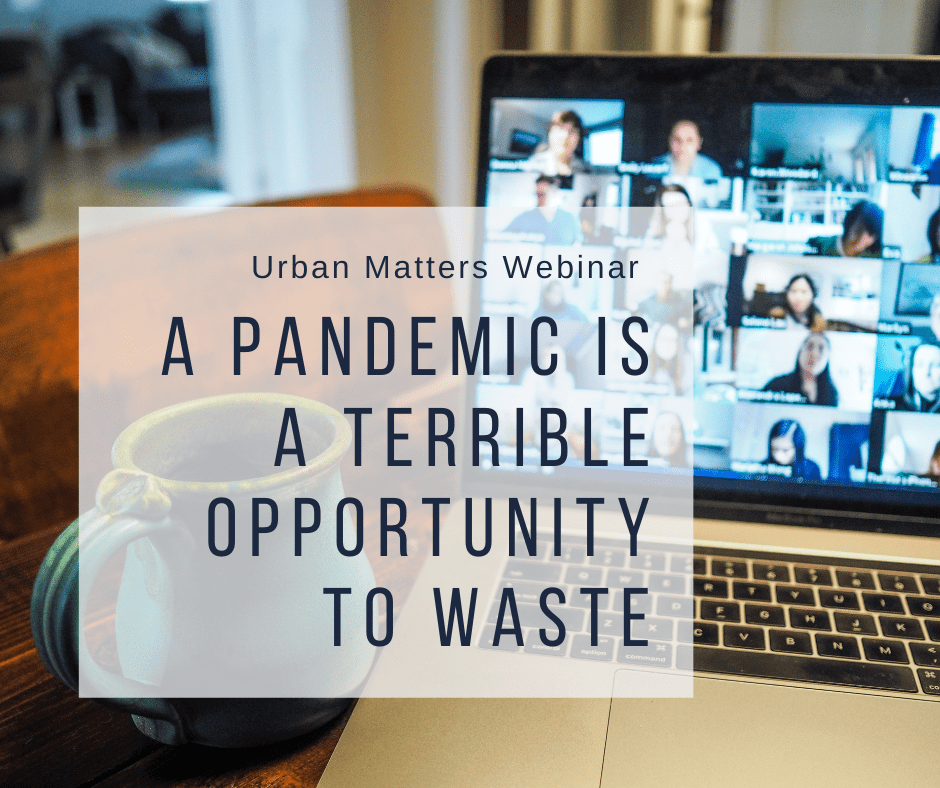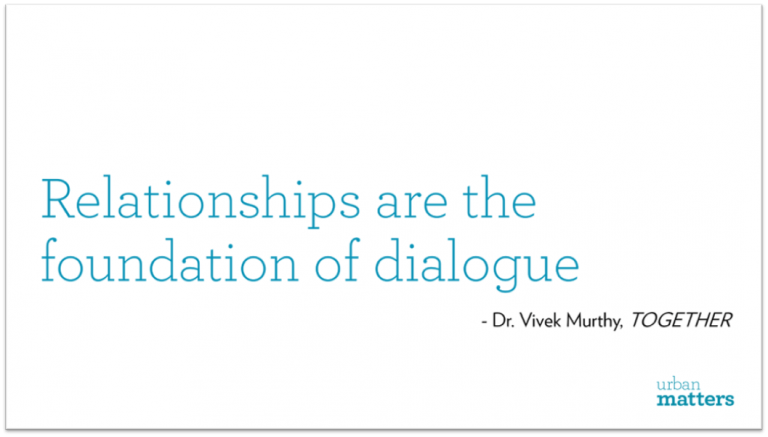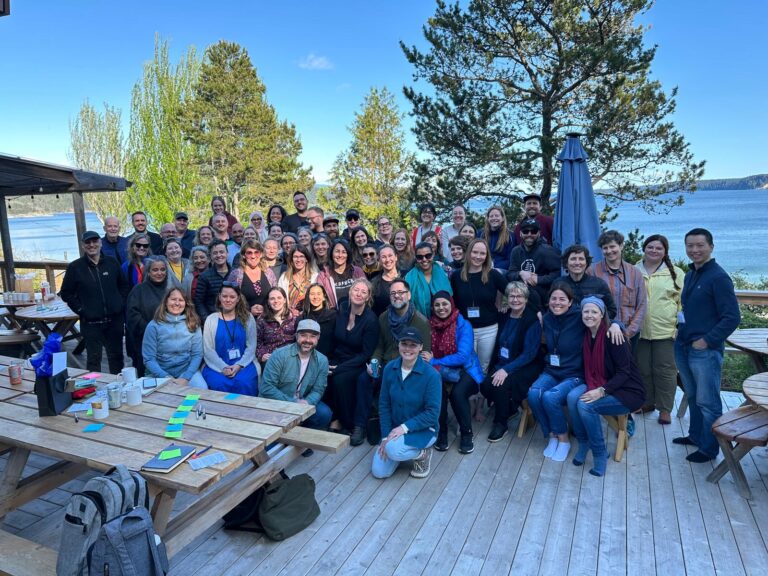
22 October 2020
A Pandemic is a Terrible Opportunity to Waste: Local Government and Their Community-serving Sector Partnerships
In Urban Matters’ second Covid webinar, BC and Alberta leaders in the field share experiences, insights and ways forward in the wake of the pandemic.
When the Covid-19 pandemic hit, local governments and their partners in the community-serving sector were faced with demands unlike anything they had ever experienced. Some actors rose to the occasion, some scrambled to find their footing, some pivoted completely, and others closed their doors, temporarily or permanently.
The pandemic brought to the forefront both the resilience and the fragilities in the community-serving sector and how important local government partnerships are, say Jen Casorso and Sarah Ravlic, who together support the social health and well-being practice within Urban Matters. In mid-October, the two facilitated a webinar to explore what local governments have learned thus far from this trial by fire, and to identify opportunities to strengthen and build their capacity to build stronger and healthier communities.
The webinar brought together an intimate group of leaders from several small and mid-size communities in British Columbia and Alberta, who discussed candidly the challenges and successes of their pandemic experiences.
A guiding principle, both to the webinar and to overall Covid responses, was strengthening relationships. As Ravlic pointed out, “when there are sustained, long-term relationships between local governments and the social sector, there is better ability to respond in times of crisis. In communities where these relationships are lacking, there is often a delayed response or an inability to respond.”
Fortunately, most participants reported that they already had fairly well-established pre-pandemic networks within the social-serving sector — and all of them drew heavily on those networks as they crafted and enacted response strategies. Those crucial connections included representatives from governments at all levels, social service agencies and non-profits, school boards, faith communities, shelters, philanthropists and foundations, planners, analysts, food banks, and volunteers. As one participant noted, “We established that we needed to work together as collaborators.” “The relationships got us through,” said another.

Staffing was often a challenge, especially as employees and volunteers with immunity issues could not participate in front-line work: one participant suggested that municipalities could make better use of volunteer coordinator positions to support the coordination and communication of services in the community. Access to immediate funding, with as little duplication and as few hoops to jump through as possible, was cited as a major strength. For example, several communities pooled funding and resources; one successfully applied for umbrella funding for five different organizations under the auspices of food insecurity. One participant noted the difficulties of getting precise details from provincial governments on the programs they were announcing. “We needed to work together to get the information so that we could plan.”
Food security, housing and homelessness, and addiction were cited as the most immediate issues demanding a response. Strategies to address the first two proved more successful than those to mitigate the third: as Casorso noted, deaths resulting from an overdose have risen sharply over the course of the pandemic, attributable to job loss, financial strain, service closure, increased toxicity in the illegal drug supply, stigma and shame, as well as outreach workers’ reduced ability to work directly in communities. The dual health emergency of the pandemic and the overdose crisis, coupled with the ongoing housing crisis in particular in British Columbia, she noted, has created a “triple crisis” — with the most vulnerable populations directly impacted by two or all three, and the ripple effects weakening community fabric for everyone.
The community-serving sector is critical to our continued Covid response, Casorso and Ravlic noted: the strategies we utilize and the relationships we build now will be fundamental to not only recovery but to our collective, ongoing well-being in a post-pandemic world. All the participants hope to maintain and strengthen the relationships they established in the pandemic, and all agreed that the sector and local governments needs to learn from its collective experience to co-create proactive strategies and plans for future crises. “We need,” said one participant, “to make sure that we don’t lose the learning for next time around.”




